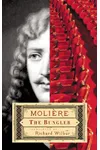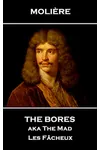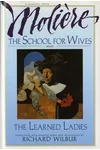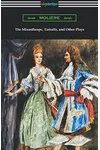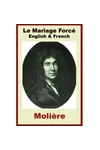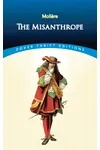Picture a French playwright who turned the stage into a mirror of society’s quirks—meet Molière! Born Jean-Baptiste Poquelin in 1622, this 17th-century genius revolutionized comedy with razor-sharp satires like Tartuffe and The Misanthrope. With a knack for blending humor and truth, Molière’s plays still sparkle with wit, poking fun at human flaws while charming audiences worldwide.
Defying his family’s plans for a respectable career, Molière chased his theatrical dreams, creating a legacy that’s as lively today as it was under the chandeliers of Louis XIV’s court. Let’s dive into the life, laughs, and lasting impact of this comedic trailblazer!
The Making of Molière
Born into a well-to-do Parisian family, Jean-Baptiste Poquelin was expected to follow his father’s path as an upholsterer or court servant. But the stage called! At 21, he ditched the family trade, adopted the name Molière, and co-founded the Illustre Théâtre. The troupe struggled, landing Molière in debt and briefly in jail, but he honed his craft touring France’s provinces for over a decade. These years shaped his keen eye for human behavior, laying the groundwork for his satirical masterpieces.
Molière’s Unforgettable Plays
Molière’s genius lay in blending farce with piercing social commentary. His plays, written in sparkling verse, exposed hypocrisy, vanity, and folly. Tartuffe (1664), a daring satire, skewers religious hypocrisy through a conman posing as a pious guru—its bold critique stirred controversy and was briefly banned. The Misanthrope (1666) follows Alceste, a brutally honest man navigating a deceitful society, blending humor with timeless questions about authenticity.
The School for Wives (1662) mocks male insecurity through a man obsessed with controlling his young fiancée, while The Imaginary Invalid (1673), Molière’s final play, lampoons medical quackery with a hypochondriac’s misadventures. His conversational style, vivid characters, and fearless jabs at the powerful made his works instant classics, performed to this day.
What set Molière apart was his ability to make audiences laugh and think. His plays, rooted in the commedia dell’arte tradition, used stock characters but infused them with psychological depth, creating comedies that felt universal yet distinctly French.
Why Molière Matters
Molière’s influence stretches far beyond the 17th century. His fearless critiques of society paved the way for modern satire, inspiring writers like Voltaire and even today’s political comedians. By earning Louis XIV’s patronage, he elevated theatre’s status, making it a respected art form. His works, translated globally, resonate with anyone who’s chuckled at human absurdity or questioned societal norms.
Molière’s life wasn’t all laughter—he collapsed on stage during a performance of The Imaginary Invalid and died hours later, cementing his legend as a man who lived for the stage. His legacy endures in theatres worldwide, where his plays still draw crowds, proving that sharp wit never goes out of style.
About Molière
- Born: January 15, 1622, Paris, France
- Died: February 17, 1673, Paris, France
- Key Works: Tartuffe, The Misanthrope, The School for Wives, The Imaginary Invalid
- Fun Fact: Molière performed under the Sun King’s patronage but faced censorship for his bold themes.
Ready for a dose of wit? Grab Tartuffe or The Misanthrope and dive into Molière’s hilarious, thought-provoking world!


